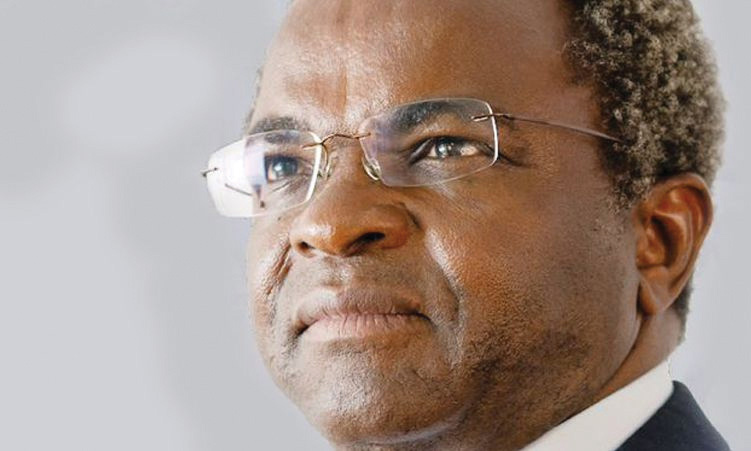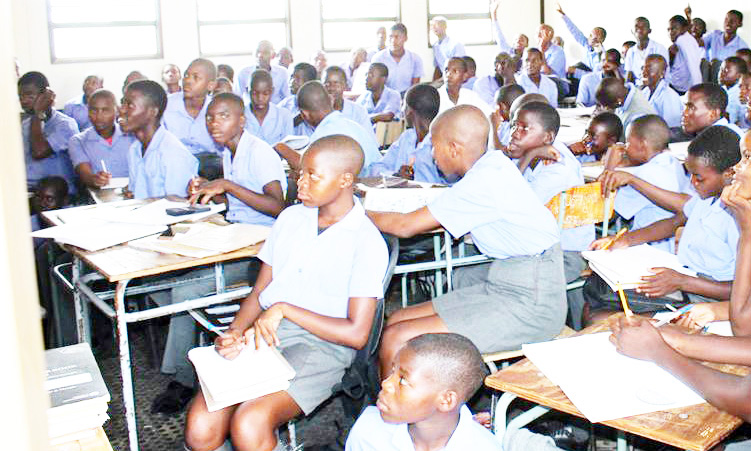CAPITALISM and open markets are here to stay and despite protests from various quarters that globalisation is a form of Western domination, Namibia is part of that market.
Through this market Namibia should help fellow African countries develop from poverty, misery and fight the HIV-AIDS scourge. These are the views of the General Manager of the Namibian Stock Exchange (NSX), John Mandy.He said, in Namibia, and elsewhere in Africa, there has been a shift from the self-sustaining rural environment to a free-market global village.Mandy was recently addressing a business forum explaining how creating a viable secondary market is unavoidable if the NSX and its associated industries are to survive.”A viable secondary market can be defined as one where there are many traders and lots of trades, with some traders expecting the market or counter to go up and either for it to go down – much like the rand and the US dollar.”The numbers of buyers and sellers or players make the market and not the number of spectators or holders of season tickets who hope in the long run to have a good game.”He added that the market had its problems, particularly during the early years when it is often the spectators who define the rules, while never having played the game.Mandy believes that open markets can be achieved through regionalisation adding that since very few countries in the region could do it alone.He also added that as much as national exchanges embodied national pride, the globalised world demanded integration of exchanges, hence the CoSSE initiative of a project known as Project Thusanang sponsored by the Johannesburg Stock Exchange (JSE).”Attracting liquidity on our market is a key challenge and there is no better way to achieve this than regional integration.”Mandy said the technological, business process and regulatory challenges posed by integrating Africa’s equity markets were considerable explaining that that was one of the reasons Project Thusanang would proceed in three phases.The first phases is the feasibility study for the subsequent phases; the next focuses on leveraging the JSE’s equities trading platform for participating African Exchanges while retaining the existing separation of markets through the use of functional segments and the third consists of the creation of a “Pan-African Board” introducing deeper integration across countries in the primary and secondary equity markets.For the first time, Mandy said, members of participating exchanges would have full access to stocks listed on other exchanges.These are the views of the General Manager of the Namibian Stock Exchange (NSX), John Mandy. He said, in Namibia, and elsewhere in Africa, there has been a shift from the self-sustaining rural environment to a free-market global village.Mandy was recently addressing a business forum explaining how creating a viable secondary market is unavoidable if the NSX and its associated industries are to survive.”A viable secondary market can be defined as one where there are many traders and lots of trades, with some traders expecting the market or counter to go up and either for it to go down – much like the rand and the US dollar.”The numbers of buyers and sellers or players make the market and not the number of spectators or holders of season tickets who hope in the long run to have a good game.”He added that the market had its problems, particularly during the early years when it is often the spectators who define the rules, while never having played the game.Mandy believes that open markets can be achieved through regionalisation adding that since very few countries in the region could do it alone.He also added that as much as national exchanges embodied national pride, the globalised world demanded integration of exchanges, hence the CoSSE initiative of a project known as Project Thusanang sponsored by the Johannesburg Stock Exchange (JSE).”Attracting liquidity on our market is a key challenge and there is no better way to achieve this than regional integration.”Mandy said the technological, business process and regulatory challenges posed by integrating Africa’s equity markets were considerable explaining that that was one of the reasons Project Thusanang would proceed in three phases.The first phases is the feasibility study for the subsequent phases; the next focuses on leveraging the JSE’s equities trading platform for participating African Exchanges while retaining the existing separation of markets through the use of functional segments and the third consists of the creation of a “Pan-African Board” introducing deeper integration across countries in the primary and secondary equity markets.For the first time, Mandy said, members of participating exchanges would have full access to stocks listed on other exchanges.
Stay informed with The Namibian – your source for credible journalism. Get in-depth reporting and opinions for
only N$85 a month. Invest in journalism, invest in democracy –
Subscribe Now!










